In today’s episode of Inbound Marketing Basics, you’ll learn the answers to the following questions:
- What is a keyword?
- Why do I need to do keyword research?
- How do I rank for keywords?
- What is the best free keyword research tool?
- How do I use keywords?
Sign up for the Inbound Marketing Basics Email Course
What is a keyword?
A keyword is any word or phrase that you type into a search engine like Google. Because a keyword can be a phrase, that means keywords can contain two, three, or even several words.

When you type a keyword into a search engine, it is often because you are looking for the solution to a problem. Sometimes that problem is a lack of knowledge, and you are merely looking for the answer to a question. Other times, the problem is more significant, and you are looking for a product or service that will fix that problem.
Smart businesses know that there are people out there—potential customers—with problems that their business can solve. The key (so to speak) lies in choosing and the right keywords and then using them correctly.
Why do I need to do keyword research?
Keyword research is the process of finding the keywords that your best customers are most likely to type into Google to find your business. Your best customers probably don’t even know you exist, but they will when you show up on the first page of Google’s search results when they type in the right keywords.
What are the right keywords? That’s what I’m going to show you.
How do I rank for keywords?
To rank for a keyword means that your website shows up in the top results when someone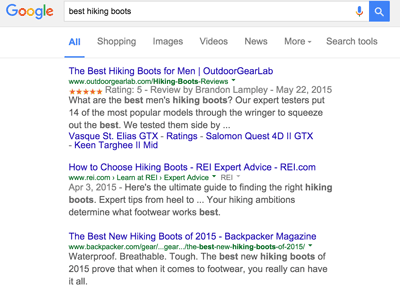 searches for that keyword. Ideally, you want your website to be one of the first sites listed on the first page.
searches for that keyword. Ideally, you want your website to be one of the first sites listed on the first page.
When someone first starts looking for a solution to their problem, they usually enter what are called broad keywords. For example, if you’re looking for new hiking boots, you might enter “best hiking boots.” Keep in mind that broad keywords are highly competitive, difficult to rank for, and may not attract the best leads. They are only looking for general information at this point.
A longtail keyword is a keyword that has lower competition and is highly specific. For example, after doing research on hiking boots, you might do a search for “merrell moab ventilator” because you found that those were the best hiking boots for your needs. Therefore, businesses that sell this type of product should target this keyphrase in order to rank for this particular need.
[Sign up here for our FREE Inbound Marketing Basics Course!]
What is the best free keyword research tool?
There are plenty of keyword research tools available, but many of them are costly. Fortunately, the best keyword research tool is also free—Google Keyword Planner. Because Keyword Planner is part of Google’s AdWords program, you’ll have to sign up for an AdWords account. Never fear, you don’t have to ever use AdWords to use the Keyword Planner.
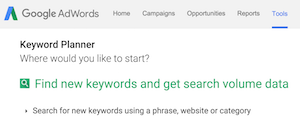
A full description of how to use Keyword Planner is beyond the scope of this article, but the basics are easy. The first thing you need, however, is a seed keyword. This is a broad keyword you enter that will give you ideas for more specific keywords.
For example, if you enter “merrell moab ventilator,” you’ll get a list of similar keywords that people have searched for. You’ll also get additional information, including the average monthly searches. Since “merrell moab ventilator” is already a specific keyword, you’ll get ideas for other products you might want to sell.
How do I use keywords?
Once you’ve identified the keywords for which you want to rank, use them where they’ll attract your customers. If you have a product page that sells Merrell Moab Ventilators, you’ll obviously use the keyword there.
However, a smart businessperson uses inbound marketing. You might write a blog post that talks about the best hiking books for desert hiking and include Merrell Moab Ventilators along with other keywords that you know your customers are looking for. Google likes blog posts that are useful and informative, and they often rank those pages higher. Also, people are more likely to share blog posts, and that sharing also increases how high you rank for your keywords.
Ready to learn how to write blog posts that attract your ideal customers using keywords?

.jpg?t=1533315998368) How-To Articles
How-To Articles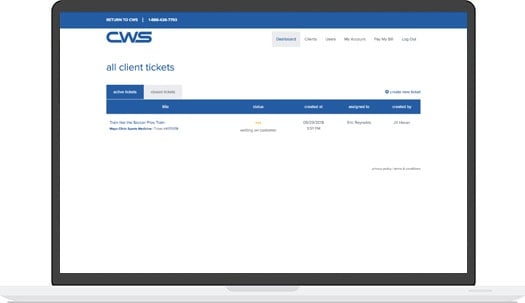 Support Portal
Support Portal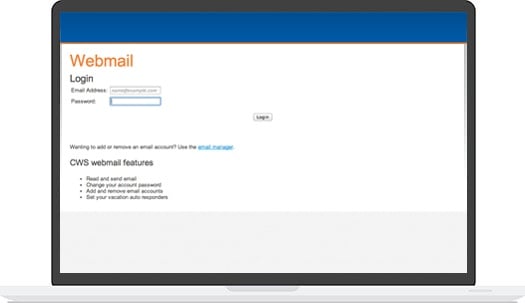 Webmail
Webmail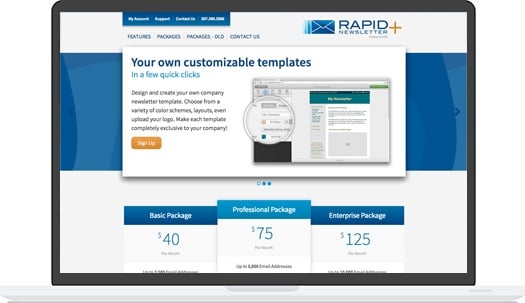 Rapid Newsletter+
Rapid Newsletter+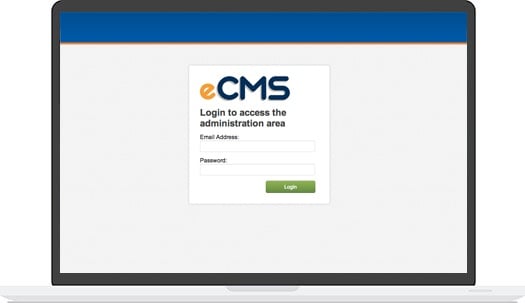 eCMS
eCMS

 Our content team is made up of thought leaders, strategists, and content creators who have more than 70 years of combined experience. With a wide variety of backgrounds as entrepreneurs, marketing gurus, healthcare associates, as well as plenty of experience in other industries, we help grow businesses with our relevant, trusted, and helpful resources.
Our content team is made up of thought leaders, strategists, and content creators who have more than 70 years of combined experience. With a wide variety of backgrounds as entrepreneurs, marketing gurus, healthcare associates, as well as plenty of experience in other industries, we help grow businesses with our relevant, trusted, and helpful resources.
